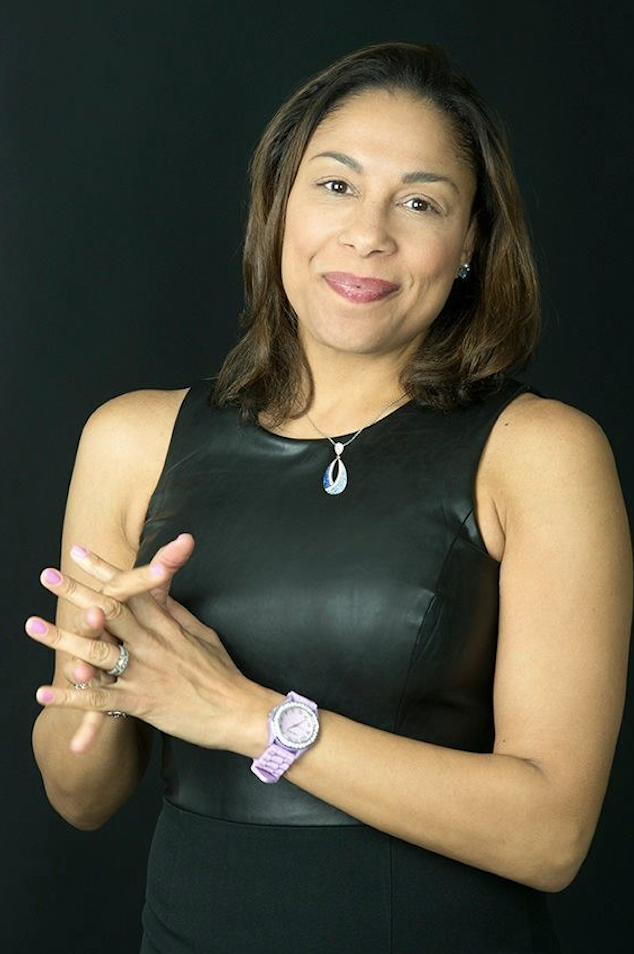Dornsife professor breaks barriers, inspires students

When Ange-Marie Hancock Alfaro was promoted to full-time professor of political science and gender and sexuality studies in December 2016, she also became the first full-time black female professor at the Dornsife College of Letters, Arts and Sciences.
“It was exciting to get the promotion, but I was shocked to find out that there had never been a black woman before promoted to full professor ever in our college because, of course, we’re the oldest college at USC,” Hancock Alfaro said.
Hancock Alfaro said USC and all other universities should strive to recruit faculty and students from diverse backgrounds to improve everyone’s experiences. While the University has hosted mandatory race training, Hancock Alfaro said all departments must take more steps to determine what groups may be excluded from their programs and find ways to improve.
“It benefits all students to know that expertise and knowledge reside in all communities, so there’s no community that is absent [of] expertise or absent [of] knowledge or technical skills,” Hancock Alfaro said. “I think, again, if you were to ask a bunch of students they’d be like ‘Of course that’s true.’ Living it out and really understanding it through experience is a different thing.”
Nearly 20 years ago, Hancock Alfaro began researching welfare reform and realized she couldn’t just focus on welfare recipients’ race and gender. Instead, she applied an intersectional lens to her research to focus on how overlaps in identities -— such as race, ethnicity, sexual orientation and gender — affect her research subjects.
Hancock Alfaro is currently finishing a research project on affordable housing for women of color in California. Next week, she will present her findings to the California State Legislature in Sacramento in hopes of helping Sen. Scott Wiener pass State Bill 50, which could offer more affordable housing options throughout the state.
Hancock Alfaro said using an intersectional lens allows her to add another layer to her research and make it more applicable. Since then, she has researched how various populations are affected by a number of topics like immigration, LGBTQ+ rights and affordable housing.
“If you want to talk about intersectionality, you have to talk about Ange-Marie Hancock,” said Jane Junn, a professor in political science and gender studies who works with Hancock Alfaro. “I don’t think there’s any other way around it.”
When Hancock Alfaro started her research, she said not many people knew the term “intersectionality.” She was one of the only people conducting research in the field. Though less so the case now that intersectionality has grown in popularity, Hancock Alfaro said students often think they understand the term based on incomplete definitions they find on social media.
“It’s actually a pretty cool feeling to know that you were an early adopter,” Hancock Alfaro said. “I think the challenge always comes, and I find this in my teaching a lot, that there’ll be a lot of folks who think they know what intersectionality is based on some YouTube video they saw or some tweet from Rowan Blanchard from the Disney Channel.”
At USC, Hancock Alfaro also serves as a mentor to students. Former doctoral student Matthew Mendez Garcia said that having her as his adviser helped him feel more confident at USC and in pursuing research projects on diversity.
“Having a person of color was important because I think she understood that that would be part of my experience,” Mendez Garcia said. “She … understands the significance of having people of color in a doctoral program asking certain questions.”
Hancock Alfaro said she hopes her research can help others and better their lives.
“I have a personality of a justice junkie for lack of a better way of saying it,” Hancock Alfaro said. “That’s certainly why I do what I do because I believe in justice, and I believe that everybody deserves access to resources and access to a life that’s got dignity.”
This story is part of the Daily Trojan’s special coverage for Black History Month. It will run periodically throughout February.

